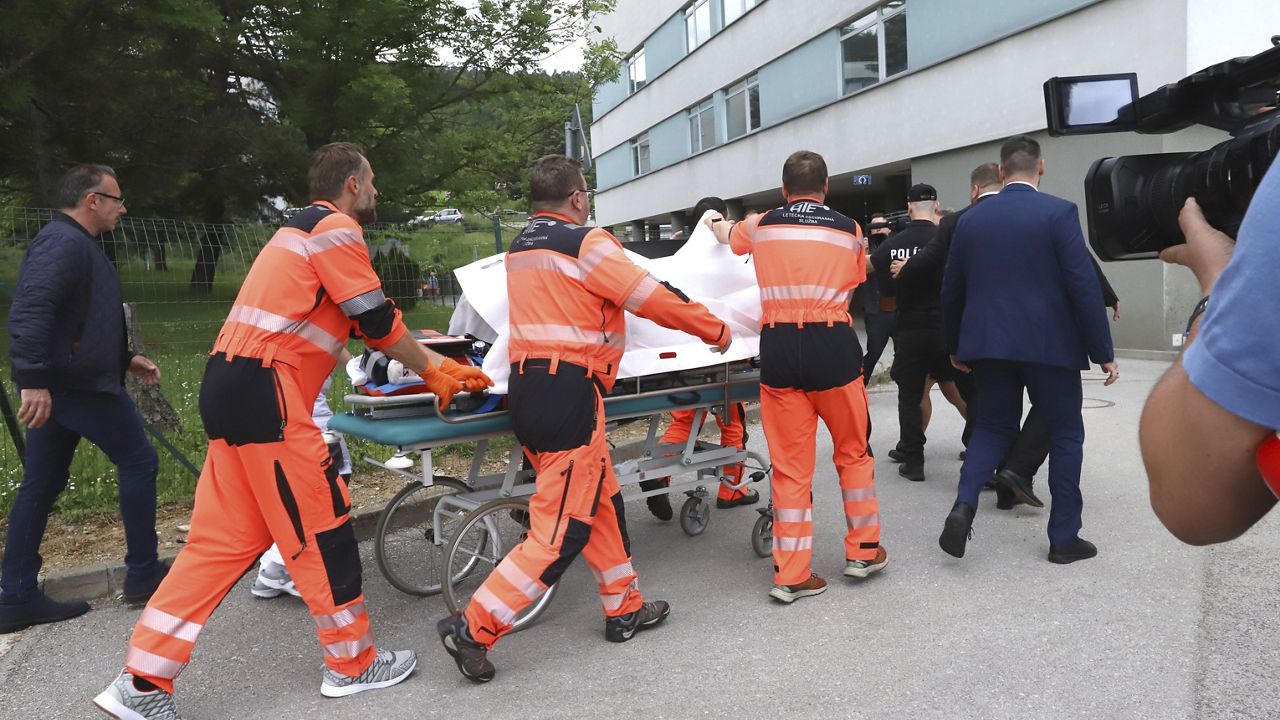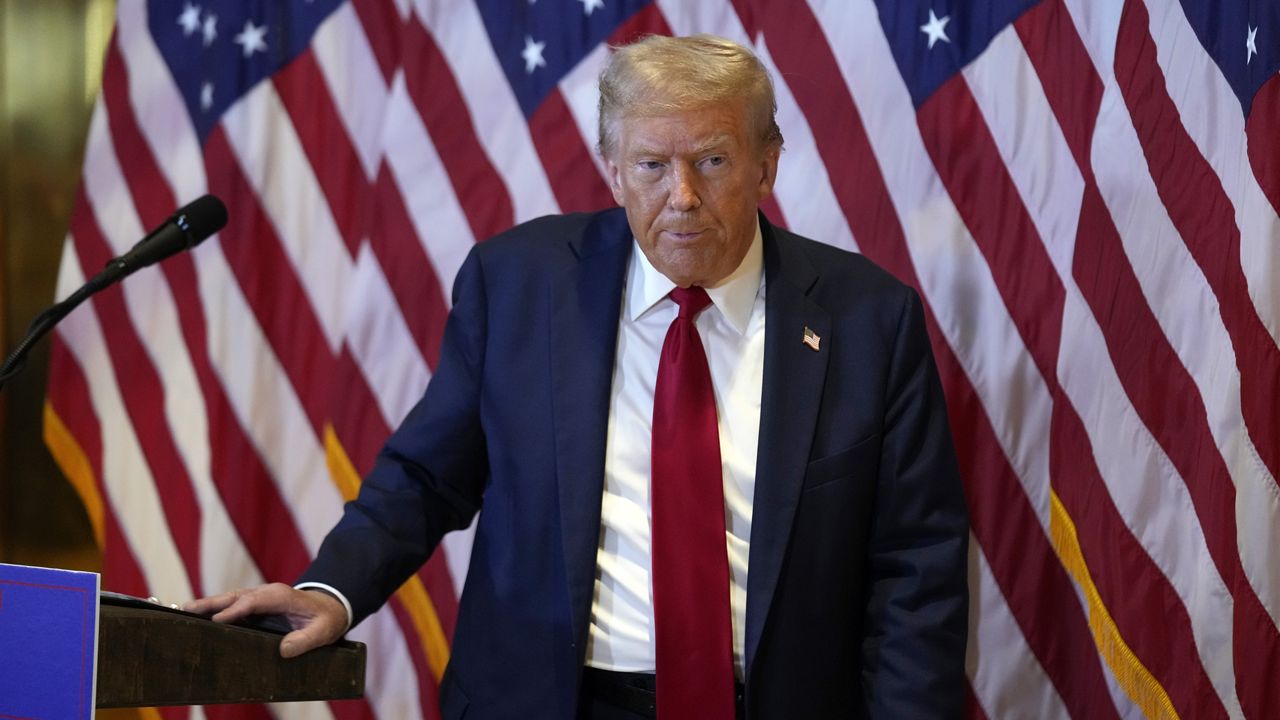Slovakia's populist prime minister, Robert Fico, was shot multiple times and gravely wounded Wednesday after a political event in an attempted assassination that shocked the small country and reverberated across Europe.
The pro-Russian leader, 59, was reported to be fighting for his life after being hit in the stomach. At least four shots were fired outside a cultural center in the town of Handlova, nearly 85 miles northeast of the capital, where Fico was meeting with supporters, the government said.
A suspect was in custody, the country’s president said in a televised statement. Fico was taken by helicopter to a hospital.
The motive for the shooting was unclear.
Fico has long been a divisive figure in Slovakia and beyond, but his return to power last year on a pro-Russian, anti-American message led to even greater worries among fellow European Union members that he would lead his country further from the Western mainstream.
His government halted arms deliveries to Ukraine, and critics worry that he will lead Slovakia — a nation of 5.4 million that belongs to NATO — to abandon its pro-Western course and follow in the footsteps of Hungary under populist Prime Minister Viktor Orbán.
Thousands have repeatedly rallied in the capital and across Slovakia to protest Fico’s policies.
A message posted to Fico’s Facebook account said he was taken to a hospital in Banská Bystrica, 17 miles from Handlova, because it would take too long to get to the capital, Bratislava.
The attack comes as political campaigning heats up three weeks ahead of Europe-wide elections to choose lawmakers for the European Parliament. Concern is mounting that populist and nationalists similar to Fico could make gains in the 27-member bloc.
“A physical attack on the prime minister is, first of all, an attack on a person, but it is also an attack on democracy," outgoing President Zuzana Caputova, a political rival of Fico, said in a televised statement. "Any violence is unacceptable. The hateful rhetoric we’ve been witnessing in society leads to hateful actions. Please, let’s stop it.”
President-elect Peter Pellegrini, an ally of Fico, called the shooting “an unprecedented threat to Slovak democracy. If we express other political opinions with pistols in squares, and not in polling stations, we are jeopardizing everything that we have built together over 31 years of Slovak sovereignty.”
President Joe Biden said that he was "alarmed" by the reports and condemned the attack.
"I am alarmed to hear reports of an attack on Slovak Prime Minister Robert Fico," Biden said in a statement. "[First lady] Jill [Biden] and I are praying for a swift recovery, and our thoughts are with his family and the people of Slovakia. We condemn this horrific act of violence. Our embassy is in close touch with the government of Slovakia and ready to assist.
NATO Secretary-General Jens Stoltenberg posted on the social media platform X that he was “shocked and appalled" by the attempt on Fico's life.
European Commission President Ursula von der Leyen called it a “vile attack.”
“Such acts of violence have no place in our society and undermine democracy, our most precious common good,” von der Leyen said in a post on X.
Fico, a third-time premier, and his leftist Smer, or Direction, party won Slovakia’s Sept. 30 parliamentary elections.
But politics as usual were put aside as the nation faced the shock of the attempt on Fico’s life.
Slovakia’s Parliament was adjourned until further notice. The major opposition parties, Progressive Slovakia and Freedom and Solidarity, canceled a planned protest against a controversial government plan to overhaul public broadcasting that they say would give the government full control of public radio and television.
Progressive Slovakia leader Michal Simecka condemned the violence.
“At the same time, we call on all politicians to refrain from any expressions and steps which could contribute to further increasing the tension,” Simecka said.
Czech Prime Minister Petr Fiala wished the premier a swift recovery.
"We cannot tolerate violence, there’s no place for it in society.” The Czech Republic and Slovakia formed Czechoslovakia till 1992.





